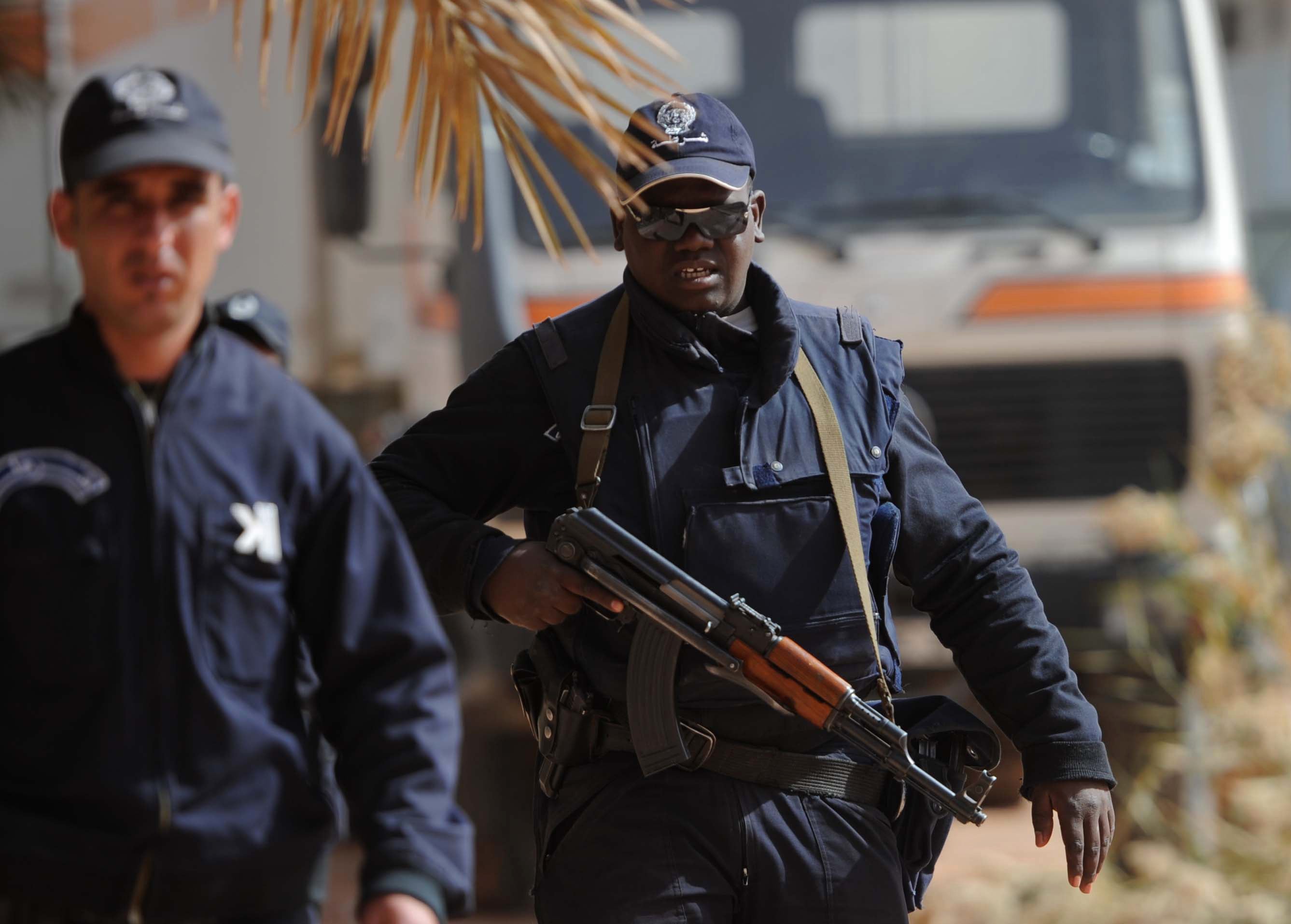‘Unprecedented’ drug waves: How Algeria became an emerging hub for cocaine coming to the UK
North Africa has increasingly become a gateway for drug smugglers targeting Europe, reports Simon Speakman Cordall in Tunis

The discovery of almost half a tonne of cocaine floating in waters off the Algerian port city of Oran late last month has underscored the growing importance of north Africa as a vital transit point for drug smugglers seeking access to lucrative European and Middle Eastern markets.
It was the second massive cocaine shipment discovered in Algeria. In May 2018, officials seized more than 700kg (1,540lb) of the drug on a cargo ship carrying frozen meat from Brazil, seeking to enter Oran after docking in Spain.
That seizure led to a national scandal and mass arrests across Algeria. With the latest haul – 490kg (1,080lb) of cocaine – presumed to have been abandoned at sea by smugglers ahead of boarding, the response to its seizure has consisted of little but chest-beating from the north African country’s security services.
The onset of the global pandemic has done little to dent the world’s appetite for cocaine. Studies of wastewater from a number of European cities during the pandemic showed that consumption of cocaine and MDMA (also called ecstasy) had returned to normal levels after an initial dip, as networks and supply routes recovered after early interruptions.
The economic instability wrought by the pandemic is now fuelling corruption and has opened the door for “unprecedented” waves of cocaine to enter Europe, Europol has warned. Launching the agency’s landmark four-yearly report in April, EU home affairs commissioner Ylva Johansson described how criminal gangs “kill innocent victims in the crossfire, murder journalists and lawyers in direct attacks on our democracies”.
Historically, cocaine has tracked a haphazard route from the coca plantations of South America to Europe. Until recently, shipments would be divided roughly between those travelling overland from west and central Africa into Europe, and those going by sea. However, since Islamist violence has ripped through much of Mali and Chad, overland routes have become precarious. Their marine alternatives provide more reliable access to Europe and onwards to the Middle East, which is where Algeria, Morocco, and – recently – Libya come in.

“That stretch of coast between Oran in Algeria and Casablanca in Morocco really does represent the ‘golden arch’ for modern cocaine smugglers,” says Raouf Farrah, an analyst with Global Initiative, an organisation tracking transnational criminal networks. “Containers enter the ports in north Africa, where corruption allows the drugs to be ‘reboxed’ before continuing to Europe – most likely Spain, or Marseilles in France – or on to the drug markets of the Middle East,” Farrah says.
According to Farrah, despite the international nature of the trade, the locus of power remains very much with the producers of South America. In the case of the 2018 seizure in Oran, the meat shipments intercepted by authorities were destined for Algerian businessman Kamel Chikhi – also known as the “the Butcher” – who had established himself as a well-known wholesaler after years of regularly importing halal meat from South America to Algeria. “It doesn’t seem all that likely that Chikhi suddenly decided to branch out into cocaine,” Farrah says. “Rather, networks in South America – in this case, Brazil – identified Chikhi and approached him.”
Either way, in Algeria, the fallout was dramatic. Chikhi, his brothers and a circle of business associates were all arrested. The tentacles of the network had spread far, with prosecutors, mayors and security officials being implicated. As a result, Algeria’s security services were restructured to reflect drug trafficking’s status as one of the country’s top security threats.
While cannabis-smuggling networks across north Africa and Europe are hardly new, cocaine has become increasingly dominant in trafficked narcotics in Morocco since the mid-1990s. “Broadly speaking, the north African cocaine connection seems to be making use of older connections set up for trafficking cannabis resin from Morocco to Europe,” Laurent Laniel, a principal scientific analyst with the European Monitoring Centre for Drugs and Drug Addiction, explains.
“Whatever the case, Morocco continues to appear as the main north African transit country for cocaine destined to Europe,” he says. However, Algeria and other countries now appear to be in the ascendancy. “A trend that is new is cocaine trafficking to Libya, likely for re-export to other markets, most probably including Europe,” Laniel says. He highlights the cocaine seizures that have occurred within Libya, as well as the confiscated cargos destined for Libya. “510 kilos from Colombia seized in Malta in December 2020 were destined for Tripoli,” he says.
The UK – the cocaine capital of Europe – consumes 117 tonnes of the drug every year, an increase of more than 300 per cent in less than a decade
Once in Europe, cocaine shipments fan out across the continent, ultimately making their way to Britain’s shores. The UK – the cocaine capital of Europe – consumes 117 tonnes of the drug every year, an increase of more than 300 per cent in less than a decade. As with north Africa, it is mainly transported to the UK by sea. “The majority of (the) commodity in volume comes via sea freight in containers,” a spokesperson for the National Crime Agency told The Independent. “The air route for the last 16 months in the pandemic has been minimal, but will rise once restrictions lift to previous levels; but that is low-volume, high-frequency, with couriers and rip-on, rip-off crews” (a term for those who repackage the drugs).
Crippled by the pandemic, war, and – in the case of Morocco and Algeria – bitter internal rivalries, the chance that north Africa will establish a unified response to this latest threat is slim. Moreover, the demand for the drug remains insatiable – in spite of coronavirus, travel restrictions and Brexit – and looks unlikely to diminish in the near future.
Join our commenting forum
Join thought-provoking conversations, follow other Independent readers and see their replies
2Comments